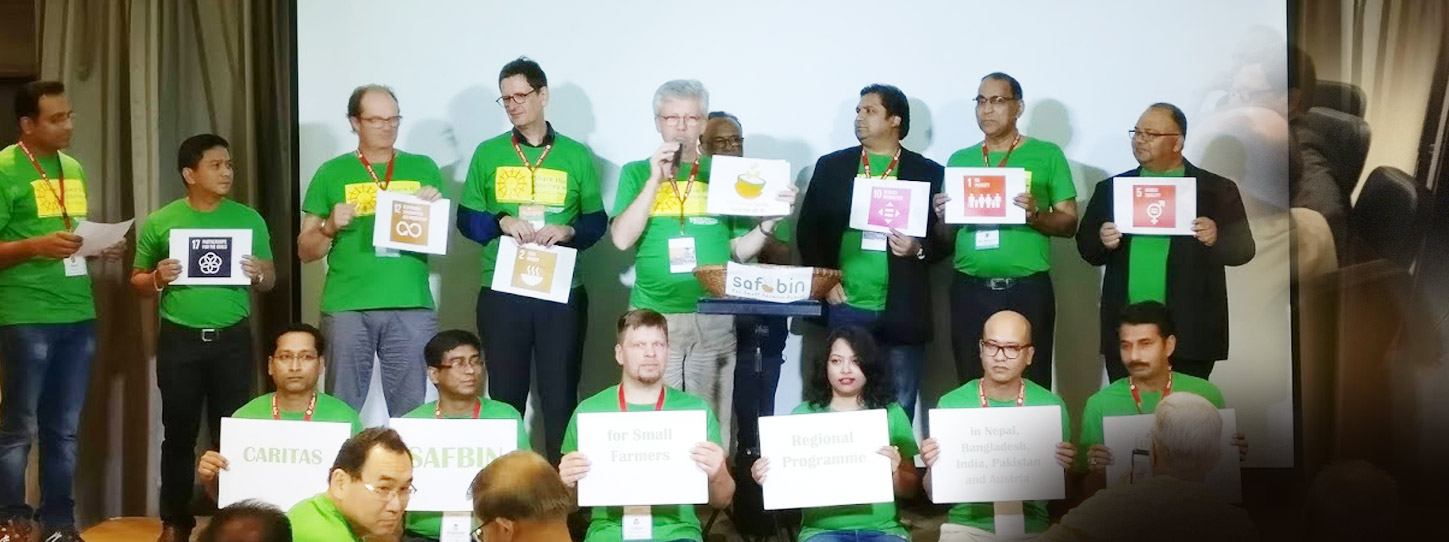
SAFBIN (Smallholder Adaptive Farming and Biodiversity Network) is the Caritas regional programme for smallholder farmers in South Asia. The programme focusing on the issues of smallholder farmers in South Asia is expected to reach about 7500 farming families and 40000 individuals. This programme was launched on June 11, 2018 during the Caritas Asia Regional Conference in Bangkok. Caritas Bangladesh, Caritas India, Caritas Nepal and Caritas Pakistan will be implementing the programme in the four countries in South Asia under the leadership of Caritas Austria. As the strategic partner organisations, Caritas Switzerland and Caritas Asia will be playing a crucial role in generating resources and in ensuring that the learnings and good practices are taken to other Caritas organisations in the region and used in advocating for smallholder friendly policies.
The launching of the programme was organized in a unique way. All major stakeholders who are part of this programme participated in the launching event. These representatives shared the symbol of Caritas and Sustainable Development Goals as a common commitment and support towards the cause of ending hunger by 2030. While contributing the symbols to the basket, they also explained why these symbols are important to them. Mr. Michael Hua , Secretary General, Caritas Internationalis; Mr. Christoph Schweifer, Secretary General, Caritas Austria; Mr. Francis Atul Sarkar, ED, Caritas Bangladesh; Mr. Amjad Gulzar, ED, Caritas Pakistan; Fr. Silas Bogati, ED Caritas Nepal; Bp. Lumen Monteiro, Chairman, Caritas India; Mr. Fred Leuner, Head of Asia, Caritas Switzerland and Mr. Zar Gomez, Regional Coordinator, Caritas Asia participated in this symbolic celebration which was blessed and launched by the President of Caritas Asia, Bp. Isao Kikuchi and handed over to the Directors of Caritas Organisations in South Asia as a symbol of solidarity and support.
Speaking on the occasion, Caritas Austria Secretary General mentioned that SAFBIN is a unique programme to address our common goal of ending hunger by 2030. This is really challenging but it is achievable, through hard work, cooperation and collaboration of all actors together. We all need to focus on a partnership of shared responsibility for a big goal and we all will have to act as enablers in the service of farmers.
The new SAFBIN programme is a continuation to the successful phase of European Union co-financed programme under the Global Programme on Agricultural Research for Development. Taking the learnings from previous phase, the new programe is focusing on the following:
The major features of the programme include: